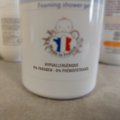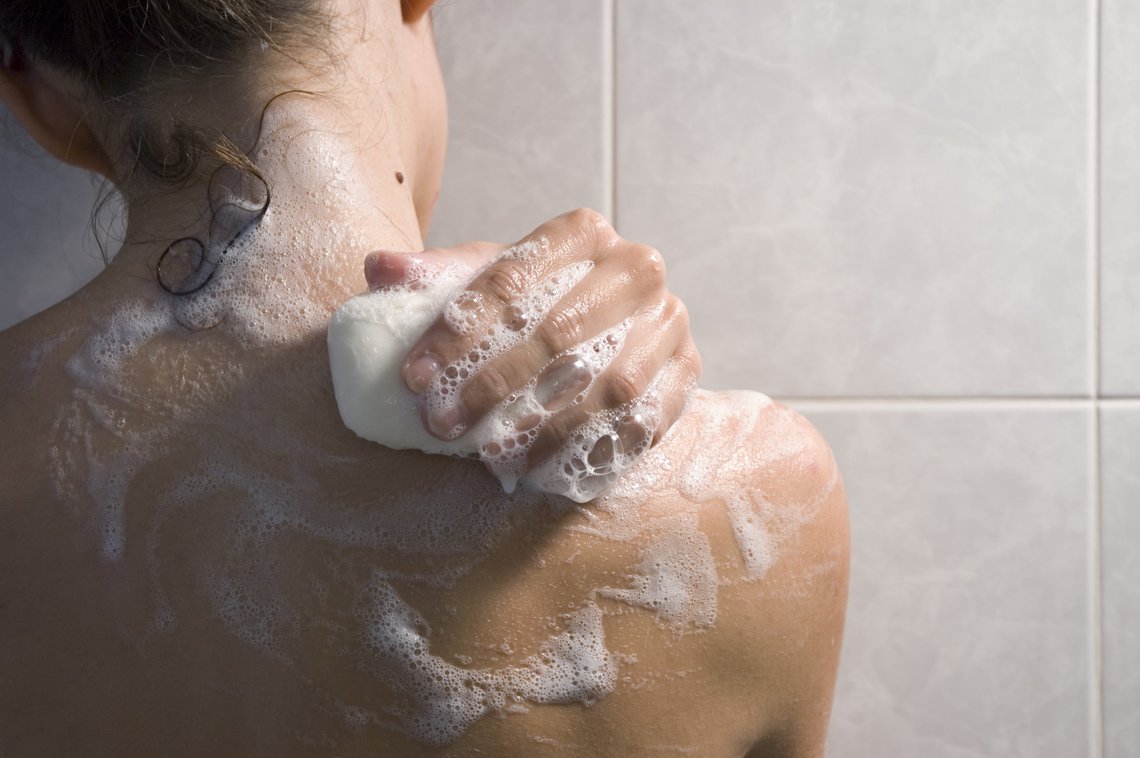
For some time now, traditional bar soap has been making a strong comeback in our bathrooms, and consequently, in stores. But with all the options available, how do we know which ones to choose? This article will provide you with details about the different types of solid bar soaps available, as well as their different methofs of fabrication : cold or hot saponification.
What is solid bar soap and how does it work ?
Soap is a product resulting from a chemical reaction called saponification between the molecules of a fatty substance and a strong alkaline agent (sodium hydroxide for solid bar soap and potassium hydroxide for liquid soap).
It acts as a surfactant, meaning it can bind both with water and fatty substances (which cannot normally bind on their own). When using soap, this new molecule made from saponification binds to the fatty molecules on our skin which can contain dirt and other impurities, and then also binds to water allowing everything to be washed away together.
Different Types of Bar Soap
"Savon de Marseille" (Marseille Soaps)
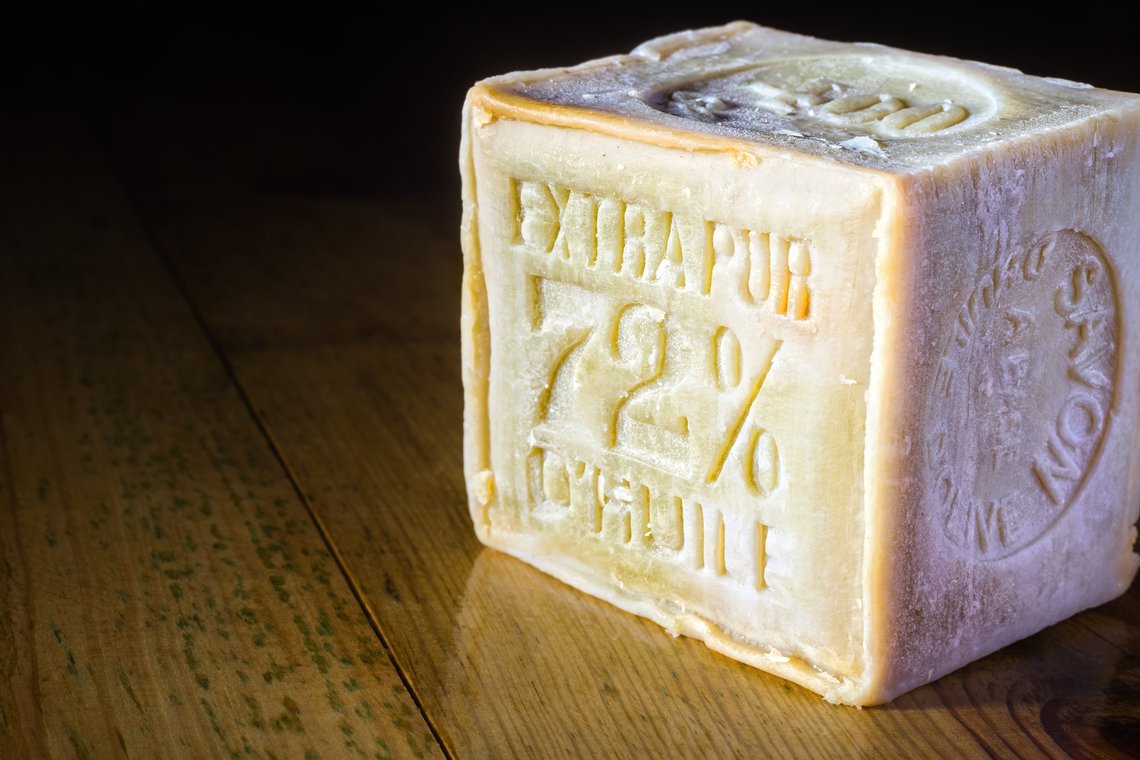
Marseille soap (as in the city of Marseille, France) is more about the process than the geographical origin. In fact, no legislative or regulatory measure requires Marseille soap to be made in the city of Marseille. This has its advantages as well as disadvantages : authentic Marseille can be made anywhere as long as the recipe and fabrication process is respected, however this allows for easy knock-offs to be sold under the "Savon de Marseille" name while selling a sub-par product.
In terms of composition, authentic Marseille soap is made of vegetable oils (coconut, palm and olive oil) and lye. Regarding the quantity, it should contain 72% vegetable oil in the product. As for the manufacturing process, it's saponified in a cauldron (therefore hot saponification), and it can be used immediately after production, although it's preferable to let it set for some time.
Discover Marseille soaps labelled Cosmébio
Aleppo Soap
Aleppo soap is both a recipe and a product from a geographical origin. Since October 5, 2011, Decree No. 9134 reserves the designation "Aleppo soap" for products actually manufactured in the Syrian city.
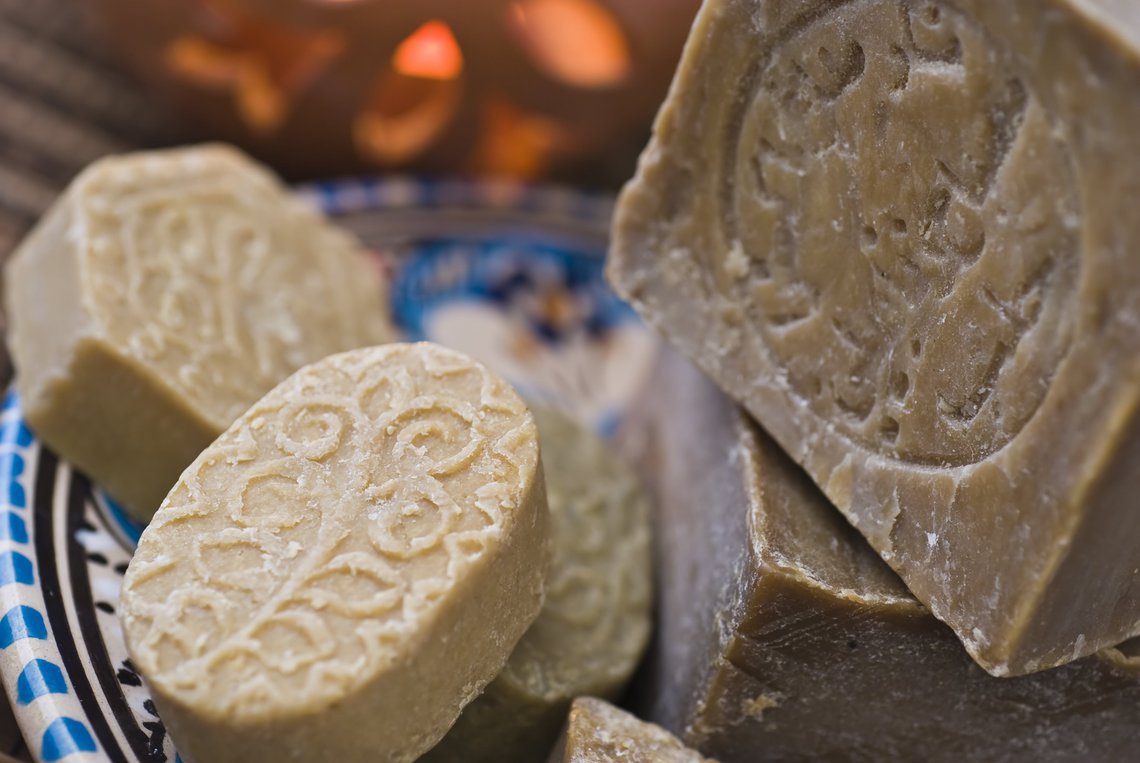
Its composition is as follows: olive oil, laurel berry oil, and lye. Particularly recommended for delicate skin, Aleppo soap is made in a cauldron (again, hot process saponification) and then dried for several months. It is recognizable by its brown color on the outside and green on the inside.
Discover the different Aleppo soaps labelled Cosmébio
Ayurvedic Soap
Not as well known as the other kinds of bar soap, Ayurvedic soap comes from the traditional Indian medicine known as Ayurveda. The main component of this product is usually coconut oil, which is combined with various medicinal plants grown in India.
Discover the Ayurvedic soap with 18 herbs by Ayurvénat
"Surgras" Bar Soaps
A surgras soap (surgras in French meaning "overly fattened" or rather in this case "oil-enriched") is a soap in which the oil or butter has been dosed so as not to be entirely saponified by the lye. The purpose of this "super fattening" is to enrich the soap with the natural properties of the vegetable oils, making is a more gentle product for sensitive skin. A surgras soap can be through hot or cold saponification from any vegetable oil.
You can recognize surgras in a soap by reading the INCI list: you will find the name of the vegetable oil twice - in its vegetable form and its saponified form. For example, for olive oil, you will see "olea europaea fruit oil" and "sodium olivate".
Discover surgras soaps labelled Cosmébio
Dermatological Cleansing Bar
Even though dermatological bars are not soap, it's necessary to discuss them in this article to reduce any confusion about the topic. The famous "soap-free soap" can quickly deceive consumers and undervalue a product that can be a real ally for your skin!
Dermatological bars, also called Syndets (synthetic detergents), are cleansing products made without saponification. If you were unaware before, our skin's pH is not neutral*, but rather slightly acidic**. Thus, having a more acidic pH than soap obtained by saponification***, dermatological bars are closer to the skin's pH. For some people, organic dermatological bars are therefore better suited to their skin. For others, organic soaps are also a suitable solution for their needs.
Sometimes dermatological bars are labeled as "soap" even though they are not actually soap. This confusion arises because they also contain surfactants that give them cleansing power. The surfactants in dermatological bars can be of natural or synthetic origin. For a dermatological bar to be certified organic, the surfactants used must be of natural origin and their manufacturing process must be respectful of humans and the environment.
The famous Sodium Cocoyl Isethionate (SCI) is not authorized in true natural and organic cosmetics.
Discover dermatological cleansing bars labelled Cosmébio
Cold process saponification, what is that?
Definition
Cold process soap making is a manufacturing process that, as the name suggests, does not involve heating the ingredients.
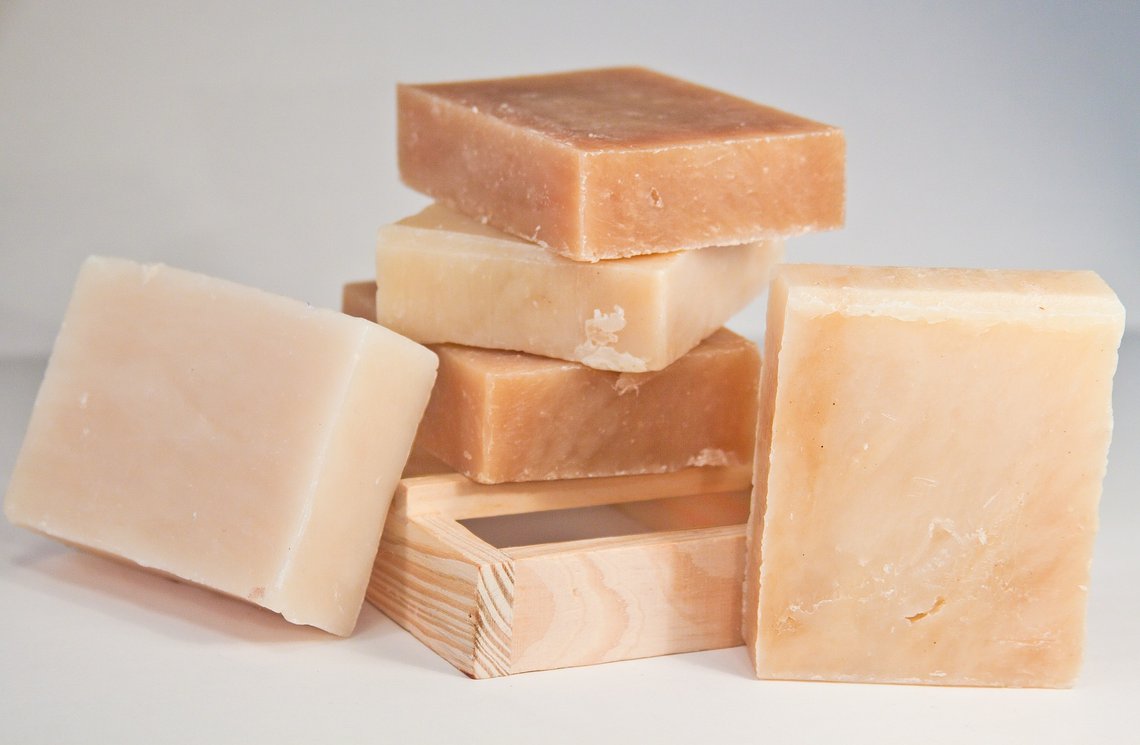
Non-industrializable, this process also differs from hot process soap making because it must be made in small batches and must cure. The curing time should be respected before the soap can be used. After 2 to 3 days the saponification has finished so it is technically safe to use ! But longer curing time allows the soap to harden, making it more durable in the shower.
Is cold process saponification better than hot process saponification?
We can't say that cold process soap making is generally better than hot process soap making.
Certainly, heating a vegetable oil can damage it and cause it to lose many of its benefits if it is fragile. However, there are oils, such as coconut or olive oil for example, that tolerate really well high temperatures. These oils will not be as affected by hot process soap making. Recognized worldwide, Marseille soap is the perfect example of this.
So, it all depends on the choice of vegetable oil. Having a surgras soap would ensure even more that your soap will retain it's beneficial properties !
In conclusion, we can say that each bar of soap is different and the choice you make will depend a lot on the properties of the oil it contains. However, all of them have something to offer each consumer 😉
* pH equal to 7
** the pH of normal skin averages around 5.5
*** the pH of a Cosmébio labelled soap averages around 10

